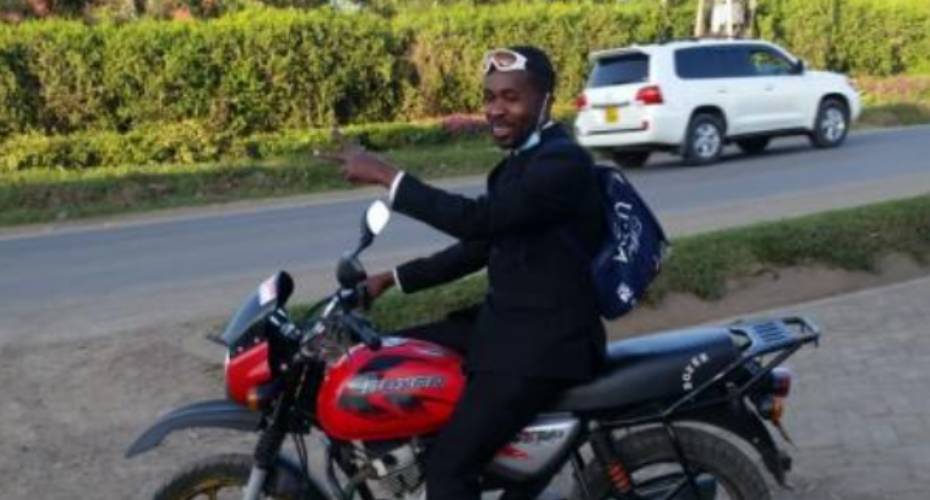×
The Standard e-Paper
Fearless, Trusted News

Brian Baraza, like most Kenyans, leads a double life. If you meet him looking dapper in a three-piece, well-tailored, black suit matched with a black tie, you wouldn’t guess his side-hustle.
Baraza, a resident of Rongai town in the outskirts of Nairobi, is a teacher of French by day and a boda boda rider by night. During the day, he enjoys the ambience of Olerai School, where he joins other teachers to deal with curious learners. Teaching is Baraza’s main hustle.